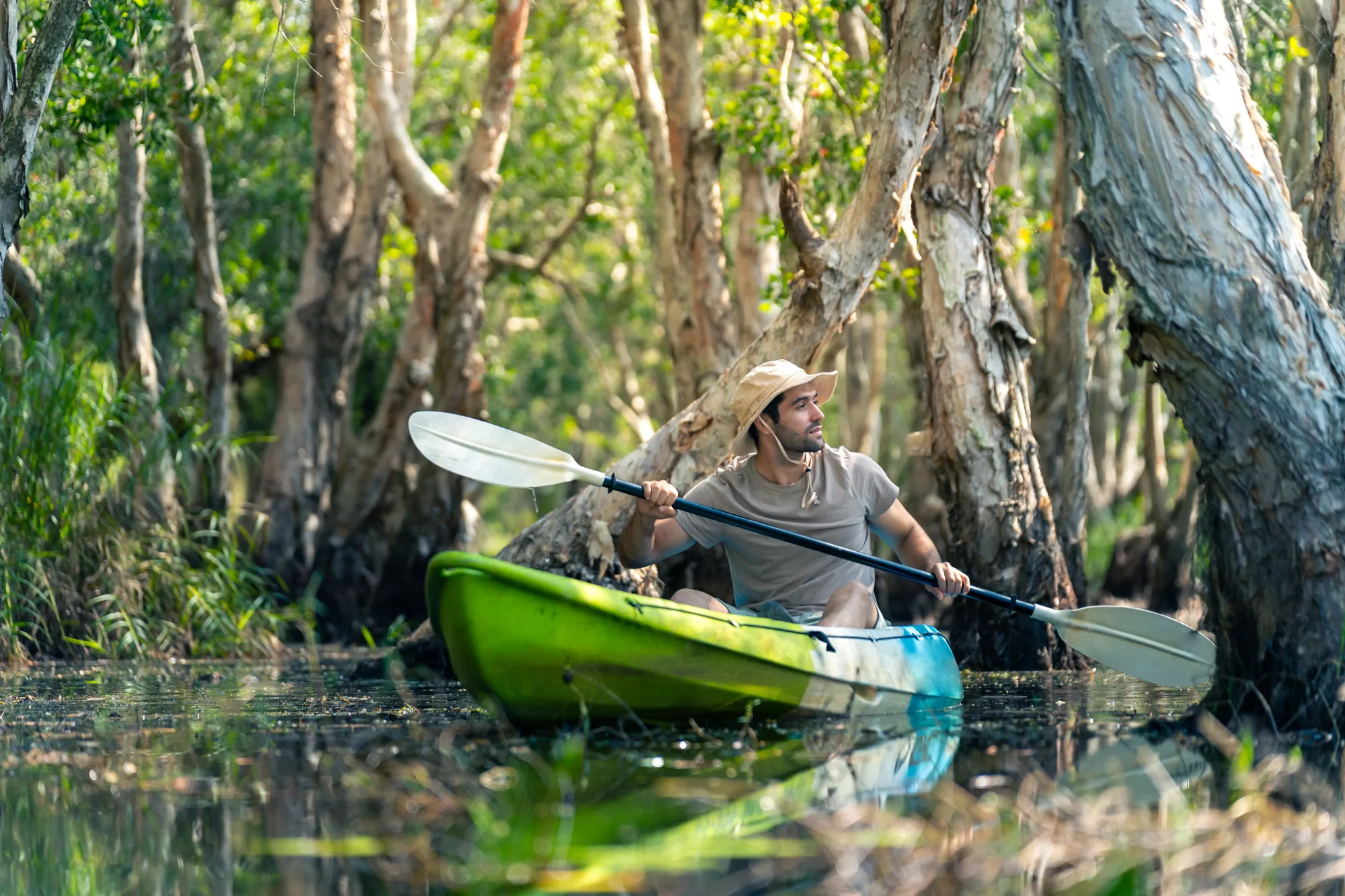If you aren’t familiar with ecotourism, the term combines “travel” and “tourism” with what is “eco-friendly.” Together, “ecotourism” is used to describe sustainable travel. Ecotourism aims to enhance the well-being of travelers, local communities, and the natural world.
Ecotourism activities support ecosystems that host natural vacation attractions such as beaches, coral reefs, and wetlands like marshes or lagoons. Habitats of endangered species susceptible to human damage and ecosystems contained within national parks or nature preserves can benefit from eco-friendly travel through increased awareness and the funds raised for conservation through entry fees.
Exclusive Offers.
Sign up to receive personalized promotions and packages for your next vacation from trusted travel experts.
What is ecotourism?
What defines ecotourism is the protection and prioritization of a region’s ecology and the support of local communities through tourism. Ecotourists can protect the environments they visit and minimize local resource use through sustainable, low-impact, and eco-friendly travel practices.
Destinations popular with tourists can experience overuse, leading to significant environmental impact and harm to local residents. It is therefore important to balance the benefits of tourism with respect for a location’s diverse natural and cultural assets. Ecotourism activities should follow these important guidelines and principles to safeguard natural resources and attractions for future generations.
Ecotourism Principles
Conservation
Conservation refers to efforts to preserve and strengthen unique biodiversity—the plant and animal life plus the geological and marine environments they inhabit—by establishing protected areas.
Conservation efforts help account for the trade-offs that are made when entering an ecosystem for the purposes of leisure travel. The risk of damage must be offset with a greater contribution to plants and wildlife within a protected area.
Conservation by Government and the Tourism Industry
Institutions like governments, tourism boards, and environmental non-profits oversee and apply conservation principles to manage ecotourism attractions and lead ecotourism initiatives.
Specific examples include limiting the number of total visitors or lowering the maximum number of visitors during a particular time of year to a natural attraction. These strategies are particularly effective when an ecosystems’ annual cycles, including wildlife reproductive seasons or rainy seasons, are accounted for.
Conservation efforts may also prohibit access to the most vulnerable parts of an attraction or eating and drinking within them to avoid the negative impacts of pollution. Authorities may also prohibit contact with local wildlife to avoid damage to habitats in environmentally sensitive areas like national parks.
Conservation by Ecotourists
Ecotourism as an approach to travel is at its best when it prompts the individual traveler to take action. It is common for authorities managing natural areas to use ecotourism as a way to raise awareness and funds to contribute to conservation efforts. Ecotourists may choose to start their own fundraisers or link to them on their social media pages to benefit conservation even when they aren’t actively traveling.
An ecotourist’s most important contribution is to know and abide by the mandates set by conservation organizations. Even small acts, such as avoiding the use of sunscreen when diving in coral reefs or resisting the urge to touch or disrupt animals, particularly those that are young or in their mating season, can go a long way. Contact local organizations prior to your visit to ask how else you can contribute to their efforts to protect natural sites.
Sustainable Tourism
Sustainability involves creating a system of resource use and reuse that balances the needs of present and future travelers. Unlike conservation, which involves policies that safeguard natural sites and resources, sustainability is about individuals traveling responsibly.
Ecotravelers must be mindful of how their travel choices impact the ecosystems they visit. The destinations they’ll go to, their mode of transportation, and their impact on and engagement with local communities all contribute to an ecosystem’s well-being. No matter how mindful one is, invasive practices including pollution and overuse will have an environmental impact.
Examples of sustainable ecotourism include:
- Booking vacations during tourism off-season to avoid overcrowding.
- Selecting less popular natural attractions to visit.
- Choosing travel companies (airlines, hotels, and travel agencies) with demonstrated commitments to ecological protection. Those who do can be called “ecotourism operators.”
- Reducing consumption of local resources while at your destination.
- Using alternative modes of transportation like bikes or public buses while traveling to lower your carbon footprint.
- Renting eco-friendly vehicles with high fuel economy, including hybrid and fully electric options.
- Following steps to avoid overhunting or overfishing protected animal species.
Cultural Awareness and Local Community Engagement
One of the most important principles of ecotourism is a traveler’s interaction with local communities and the economic opportunity stewards of a destination’s natural resources are entitled to. Local people may choose to share their cultural heritage with visitors in an effort to raise environmental awareness and promote the host communities’ economic growth.
The intersection of environmental and cultural awareness as it relates to ecotourism beings with understanding the relationship between local culture and cultural heritage and ecotourism development. When done correctly, ecotourism is also one of the surest ways to spread the financial benefits of the tourism industry.
Supporting culture awareness and engagement includes:
- Promoting sustainable development by generating economic benefits for locals.
- Providing economic opportunity to residents by patronizing locally owned businesses, using locally sourced products, and relying on local service provider partners like tour guide agencies.
- Becoming aware of concerns and problems experienced by local peoples, including their political, economic, and environmental challenges.
- Demanding that local residents share in the social and economic benefits of ecotourism and ensure traditional residents’ needs are met first.
- Respectful cultural immersion on terms set by indigenous and local communities.


